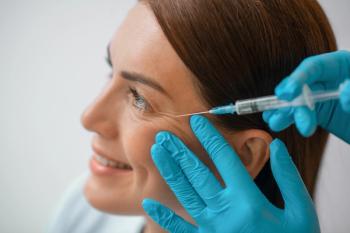
The One-Star Patient Review
An analysis by Vanguard Communications suggests more weight is attached to physician patient reviews compared to those of hotels and restaurants.
Online reviews can affect how successfully the aesthetic practice captures prospective patients, and according to a
“What’s really interesting is that each category – restaurants, hotels, doctors – averages a 3.5-star rating, but the paths to their scores are vastly different,” explains Jonathan Stanley, Communications Technical Director for Vanguard.
Vanguard Communication notes that a doctor’s online reviews generally don’t rate any better or worse compared to the other categories, but that physicians’ reviews can carry as much as five times the weight towards the public opinion of a medical practice.
“On average, a hotel receives 61 reviews, restaurants 27 reviews, and doctors 13 reviews,” according to their analysis.
In a recent article for
He found that the ability for a doctor to communicate with a patient was much more important than any other factor.
“The most important factors why patients chose their surgeon for facelift was related to their ability to communicate, establish rapport, have an appropriate demeanor and answer their questions…,” says Dr. Honeybrook. “So in terms of facelift, at least, the patients mostly chose their surgeon…for interpersonal reasons.”
This is cemented with the Vanguard’s analysis, which found that the inability to communicate is the primary reason for unsatisfactory ratings.
“Disorganization, poor communication, long wait times and other customer service complaints are the dominant rating issues for physicians today,” according to Ron Harman King, CEO of Vanguard.
Along with this information, previous Vanguard research also shows that patients are nearly two times more likely to leave a good review than a bad one for a doctor. They found that 66% of 34,748 online patient reviews were four or five stars; 34% were one or two stars.
When receiving negative reviews, however, a 2019 survey by
Address the review head on.
According to the survey of 839 people, patients like it when doctors respond directly to their negative online reviews and it can “increase patient satisfaction rates by almost double. The rate of dissatisfaction can drop as much as 59%.”
“Addressing negative reviews can not only salvage a provider's brand reputation, but it can increase reimbursement, since reimbursement is increasingly tied to patient satisfaction metrics,” the article says.
Newsletter
Like what you’re reading? Subscribe to Dermatology Times for weekly updates on therapies, innovations, and real-world practice tips.











